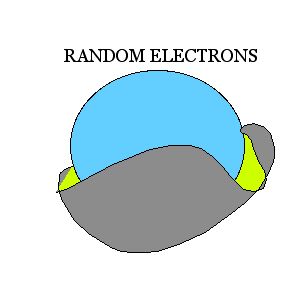
 |
|
In less than a decade, magazine cover heros have turned into ordinary villians. CEOS The chief executive officers were the financial stars in the 1990s. They were leading the country into the greatest expansion of all Time. They were creating wealth at staggering levels. However, when now know that most of this great wealth creation was only on paper. Instead of gracing the covers with long term results, some CEOs are on the covers perp walks. ACCOUNTANTS It is boring doing math day in and day out. So accountants decided to supplement their profession with consulting. First, they wanted to become computer software and business network experts. They could do their clients a great service in integrating the paper-filled conglomerate into a neat digital powerhouse. Once they ran the gambit of that form of consulting, it is apparent they decided to get into more service consulting, such as how to create, massage and sell creative balance sheets. Now, the accountants-auditors are taking most the blame for not uncovering and reporting the false accounting of their clients. INVESTMENT BANKERS The bread and butter in the investment bank houses is to squeeze profit from assets. In the 1990s, they did not need to find a nuts and bolts physicial factories to merge together into a salable business enterprise. The IPO napkin business plan was sufficient. No one knew what the Internet could or could not do. It did not matter. All that mattered is that you went to the market with a good story, hot buzz and the stock will soar. So you parcel out blocks to your friends, or skimp on due diligence, and a decade later most of those good stories no longer exist. BROKERS AND FUND MANAGERS They are supposed to help clients avoid risks. However, stockbrokers are merely salesmen-- selling stocks and bonds. They had made their money by transaction fees, so the more clients bought and sold, the more profit. When the 1990s stock bubble was rising, the brokers influenced tremendous amount of power and respect. If they could get you into a hot IPO, an investor gave him carte blanche to churn his account portfolio. But in the market, the game of musical chairs ended swiftly, leaving most investors high and dry with worthless book entry shares. Mutual fund managers are the latest to get hit. The mutual fund manager was supposed to be a conservative, institutional investor who pooled the small investors funds so they could compete with the large pension funds and banks. Managers were entrusted with the investors funds to manage, even more so than a typical stockbroker. So when managers were cutting trades outside the closing ticker, they were undercutting their own small investors. Trust was lost. No wonder the average person could not understand why the market would go up big one day, and on no new news, drop big the next day. These afterhour trading patterns, with no risk and built in profit for the privileged, were sold at the opening to cash in on the overnight profit. No wonder the generation who went through the Depression are still wary of banks and the stock market. They believe it is fixed by the villians.
|